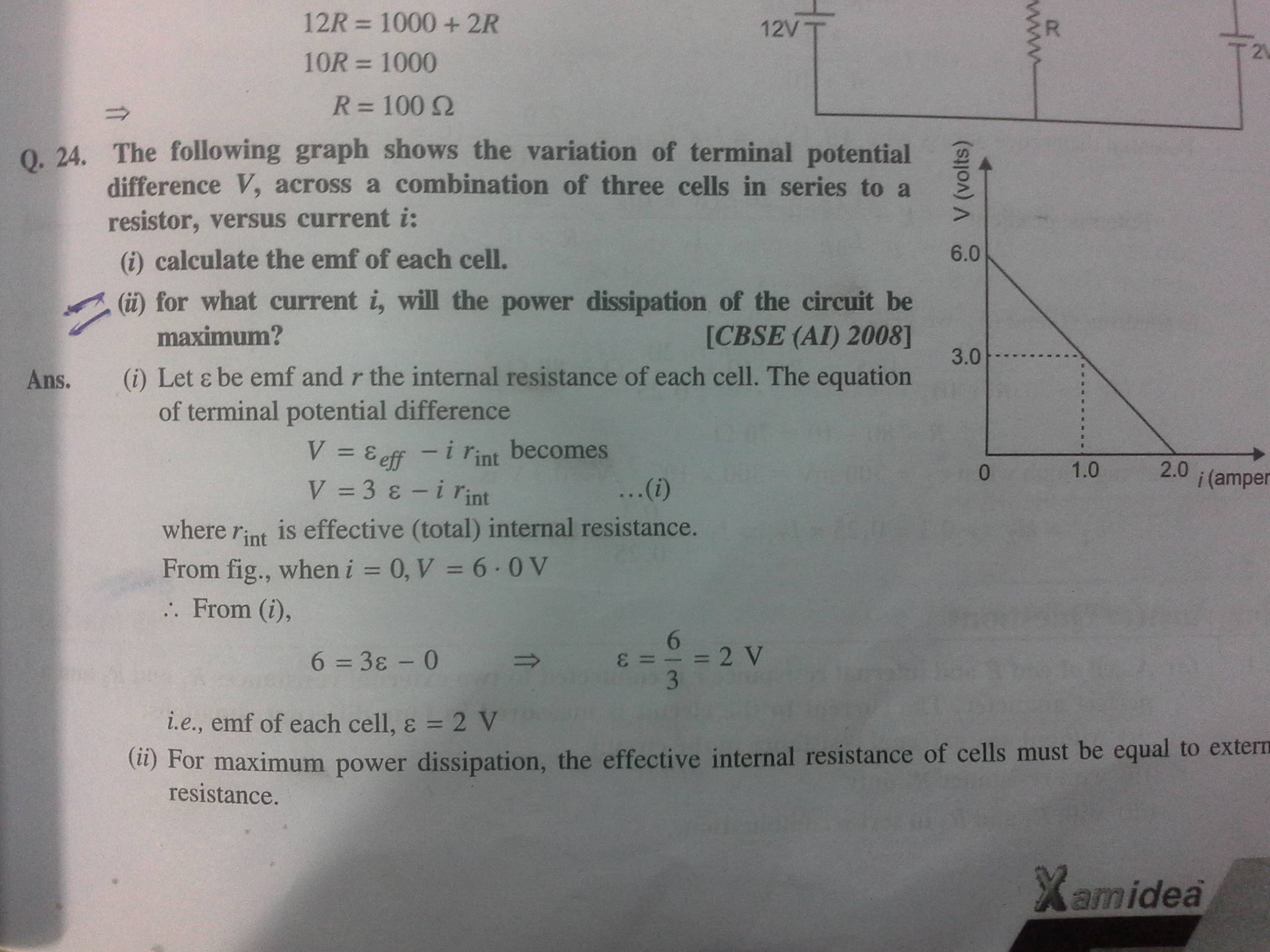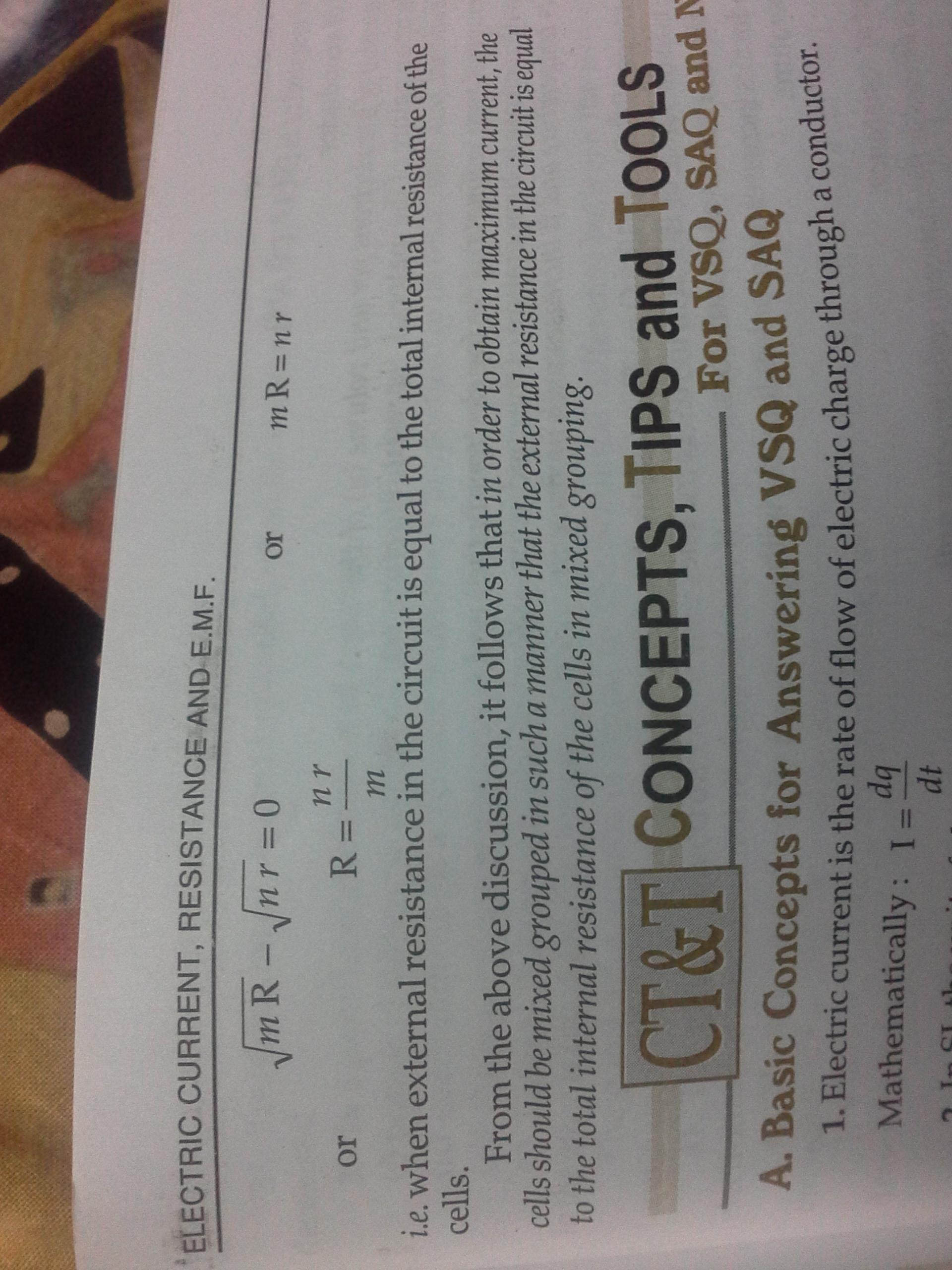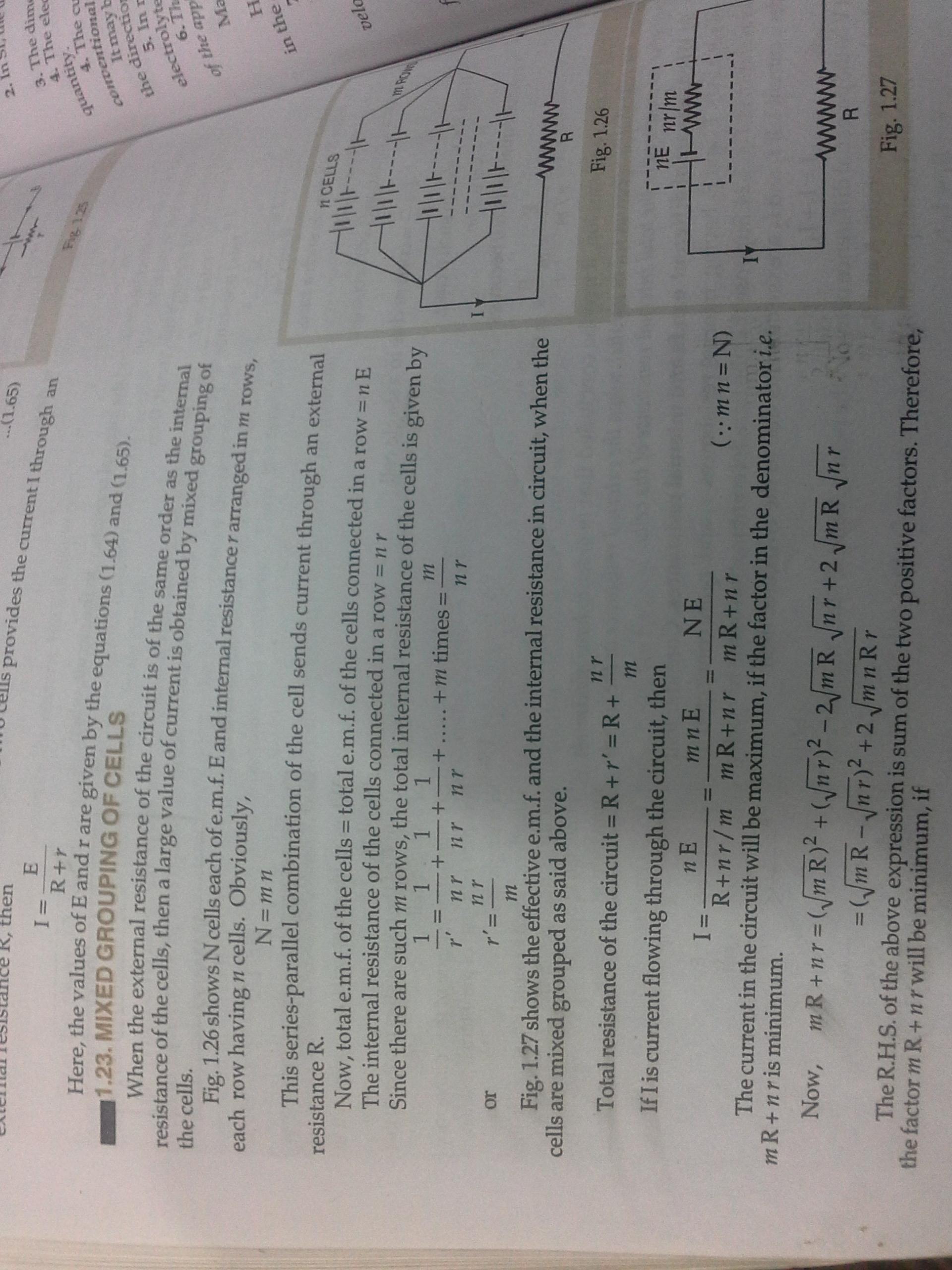
[![question 24][1]][1]
 Suppose in a circuit the battery has emf 6V and internal resistance 3ohm. It is connected to an external resistance = R ohm. According to my book the maximum power dissipated is when R = 3 ( I.e. internal resistance). They have derived the result and it seems fine. Now power = I^2 ( R+3) and I = 6/(R + 3) so power should be 36/(R+3). But if we put R=3 power is 6 w and if we put R = 0 power is 12 w. So shouldn't power be maximum when external resistance is 0?
Suppose in a circuit the battery has emf 6V and internal resistance 3ohm. It is connected to an external resistance = R ohm. According to my book the maximum power dissipated is when R = 3 ( I.e. internal resistance). They have derived the result and it seems fine. Now power = I^2 ( R+3) and I = 6/(R + 3) so power should be 36/(R+3). But if we put R=3 power is 6 w and if we put R = 0 power is 12 w. So shouldn't power be maximum when external resistance is 0?
Post Closed as "Not suitable for this site" by John Rennie, FraSchelle, ACuriousMind♦, Gert, user36790
